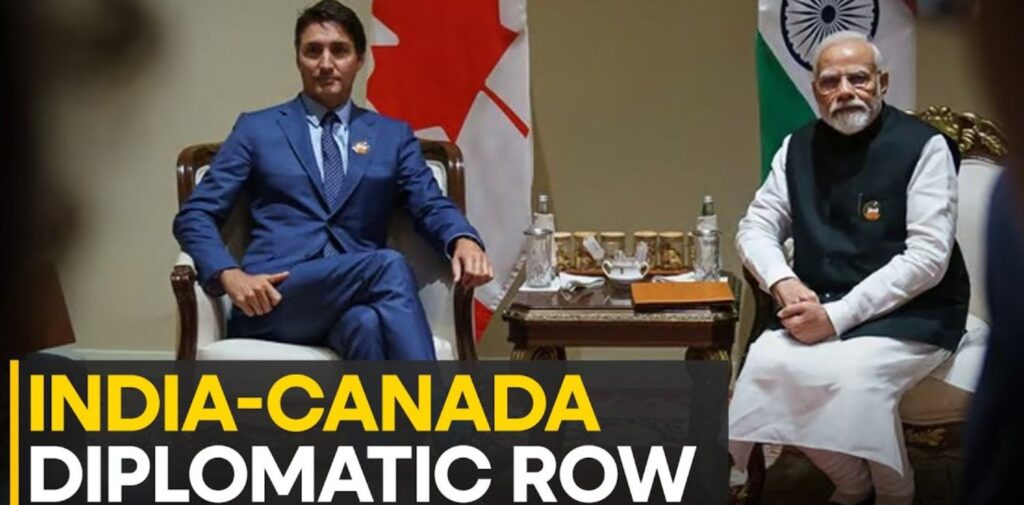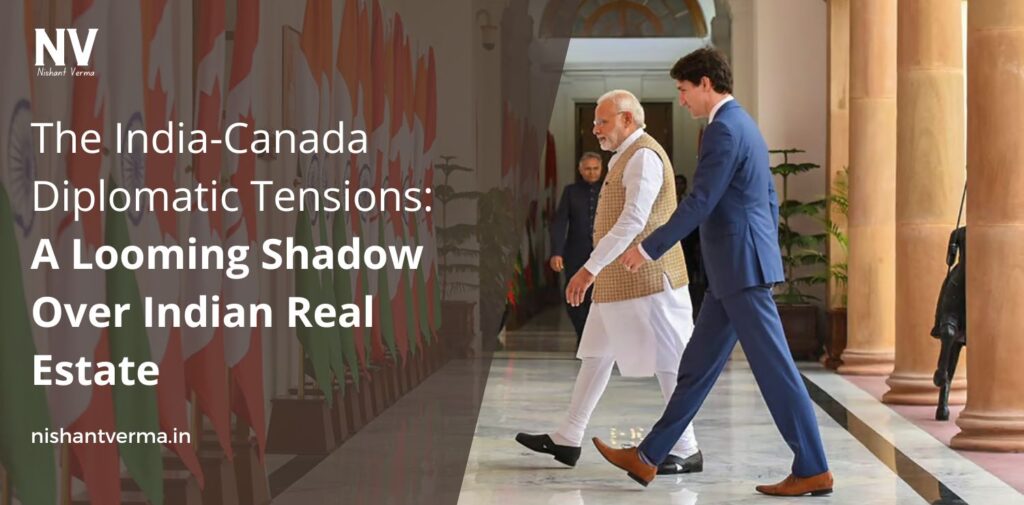In recent months, diplomatic relations between India and Canada have deteriorated significantly, leading to a complex web of implications across various sectors. Among the most affected is the real estate market in India, a sector that has historically attracted substantial foreign investment, including significant contributions from Canadian entities. As tensions escalate, questions arise about the future of these investments and the broader impact on the Indian real estate landscape.
Understanding the India-Canada Diplomatic Tensions Rift
The diplomatic fallout between India and Canada has its roots in geopolitical disagreements, particularly surrounding issues of national security and immigration policies. This discord was amplified by accusations and retaliatory measures, leading to heightened scrutiny of Canadian investments in India. Experts suggest that while the political climate is charged, the economic fundamentals supporting Canadian investments, particularly in real estate, remain resilient—at least for the time being.

Canadian Investments in Indian Real Estate: A Historical Perspective
Historically, Canada has been a significant player in the Indian real estate market, particularly through pension funds and institutional investments. Canadian pension funds have poured billions into various sectors in India, including real estate, infrastructure, and technology. This inflow of capital has been crucial for driving development projects, urbanization, and employment in the Indian economy.
According to industry experts, Canadian institutional investors have shown a keen interest in India’s real estate sector, primarily due to the country’s rapid economic growth and urbanization. This long-term perspective suggests that while current diplomatic tensions may create temporary hurdles, the fundamental interest in India’s real estate market may not wane significantly.
Immediate Impacts on Investment Sentiment
While experts believe that Canadian investments will continue in the short term, the current diplomatic strife has led to a palpable uncertainty in the market. Investors are increasingly cautious, leading to a slowdown in new projects and expansions. The uncertainty can be categorized into several areas:
- Market Sentiment: The ongoing diplomatic tensions can negatively influence investor confidence. Even if existing investments remain intact, potential new investments may be delayed or reconsidered, affecting project timelines and growth forecasts.
- Regulatory Scrutiny: Increased scrutiny from both governments can lead to more stringent regulations, which may complicate investment processes. The Indian government may become more cautious in approving foreign investments, particularly from countries embroiled in diplomatic disputes.
- Perception of Risk: Investors typically factor in geopolitical stability when making investment decisions. As tensions rise, the perceived risk associated with investing in India may increase, prompting Canadian investors to reassess their strategies.
- Currency Fluctuations: Diplomatic disputes can lead to fluctuations in currency values, affecting the return on investment for foreign investors. A weaker Indian Rupee could make investments less appealing to foreign investors looking for stable returns.

Long-term Implications on Real Estate Development
While the immediate impacts of the diplomatic rift are concerning, the long-term implications could be more profound, especially if tensions persist:
- Shifts in Investment Patterns: If the current situation prolongs, we may see a shift in investment patterns, with Canadian investors potentially diversifying their portfolios to minimize risk. They might explore other emerging markets, reducing their focus on India.
- Impact on Mega Projects: Several mega real estate projects in India are reliant on foreign investment. Any significant pullback from Canadian investors could jeopardize these projects, leading to stalled developments, layoffs, and a ripple effect on local economies.
- Increased Local Competition: With foreign investments potentially slowing, local developers may face increased competition for funding. This could lead to higher capital costs and a struggle to maintain project timelines, ultimately affecting the overall growth of the real estate sector.
- Investor Relations and Diplomacy: The Indian government may need to engage in diplomatic efforts specifically targeting Canadian investors, reassuring them of the country’s commitment to a stable investment climate. This could involve outreach programs, trade delegations, and investment forums aimed at rebuilding trust.

The Role of Indian Government Policy
The Indian government’s response will be critical in shaping the future landscape of real estate investments. To mitigate the effects of diplomatic tensions, several strategies could be considered:
- Strengthening Bilateral Ties: Engaging in dialogue to resolve diplomatic tensions can help restore investor confidence. High-level discussions focused on trade and investment can facilitate better relations and a smoother investment process.
- Policy Reforms: Implementing policy reforms that make it easier for foreign investors to enter and operate in the Indian real estate market can help offset negative sentiment. Simplifying regulatory processes, providing tax incentives, and enhancing property rights can be effective strategies.
- Fostering Local Investment: Encouraging domestic investment in real estate can help buffer the sector against fluctuations in foreign investment. By incentivizing local developers and investors, the Indian government can create a more resilient market.
- Promoting Transparency: Increasing transparency in the real estate sector can help build trust with foreign investors. This includes clearer regulations, more accessible information, and a streamlined approval process for foreign investments.
Conclusion: A Pivotal Moment for Indian Real Estate
The ongoing diplomatic tensions between India and Canada present a pivotal moment for the Indian real estate market. While current Canadian investments appear stable, the future is uncertain, and a prolonged rift could have significant consequences.
Real estate is not just an economic indicator; it is a barometer of confidence, stability, and growth. As India seeks to position itself as a global economic powerhouse, the need for a robust and resilient real estate sector has never been greater.
As stakeholders in both countries navigate this complex situation, the focus must remain on fostering dialogue and building relationships that transcend political disputes. By doing so, both nations can ensure that their mutual interests in trade and investment prevail, paving the way for continued growth in the Indian real estate market.
Ultimately, while the current diplomatic war presents challenges, it also serves as an opportunity for India to reinforce its commitment to becoming a preferred destination for global investors, ensuring that the future of its real estate sector remains bright amidst geopolitical uncertainty.




